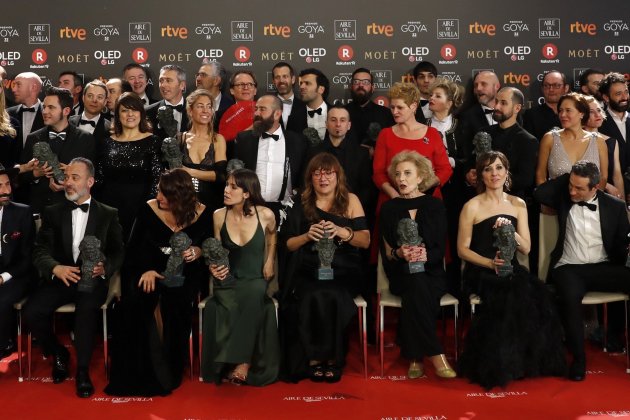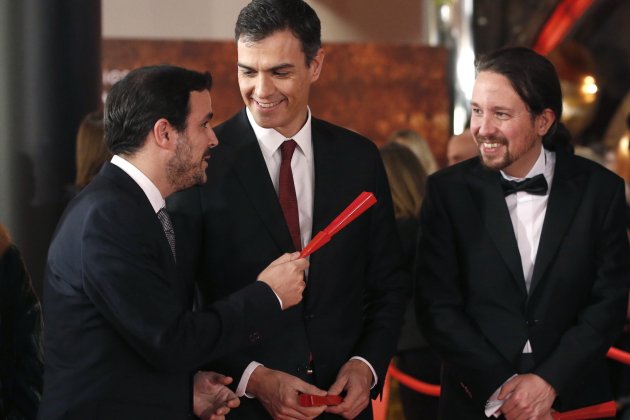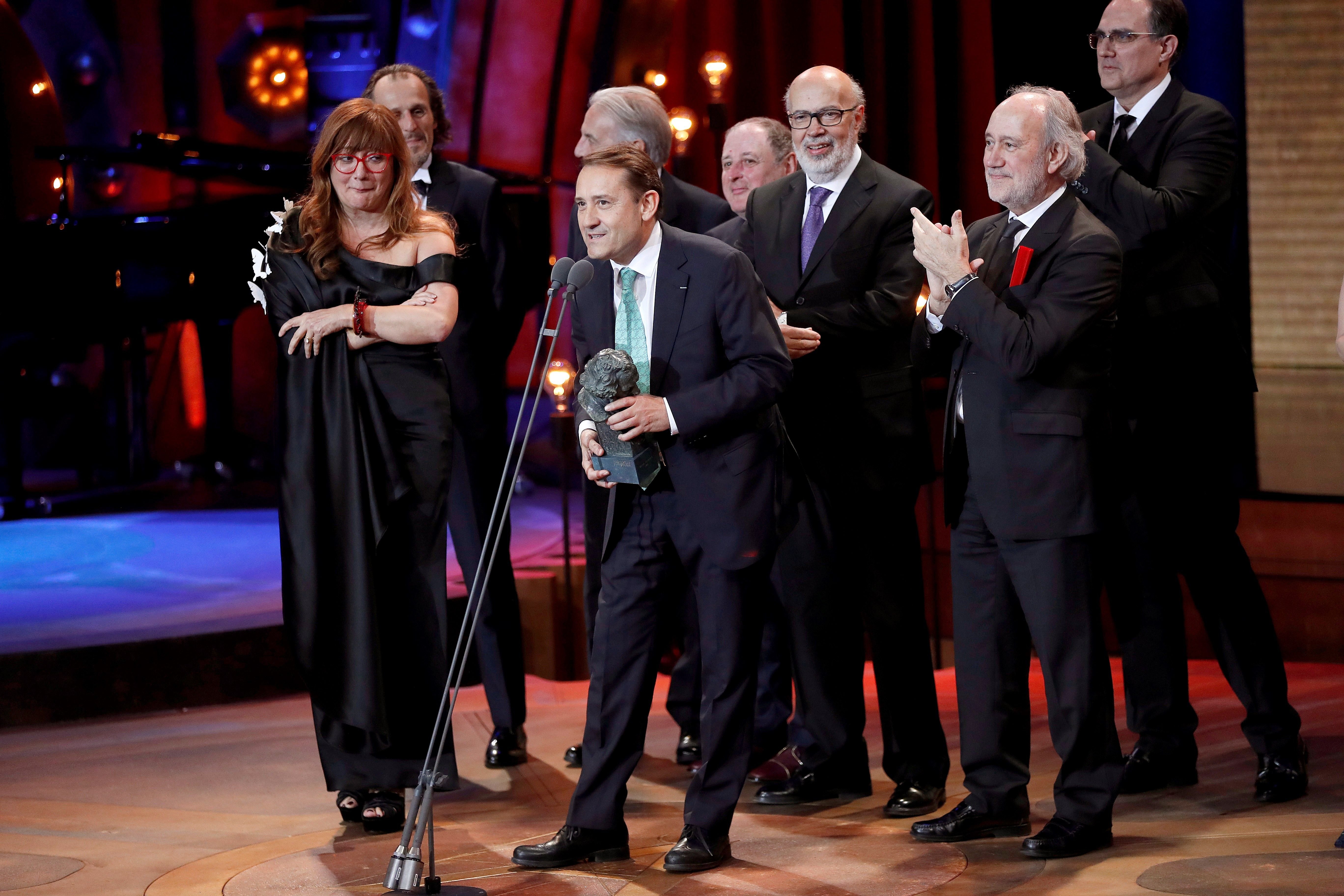If something has characterised the world of culture it's been its activism. This has been seen year after year in awards ceremonies like Goya awards. In 2003, Spain's largest annual film prizes played host to criticism of the Spanish government and the Iraq War, in 2009, they saw criticism of the financial crash, and in 2012, a robust defence of Spanish judge Baltasar Garzón after his firing. This year it was a feminist gala, strongly critical of sexism in cinema, but saw no mention of the Catalan political prisoners, despite them being doubtlessly one of the main stories of the years.
Madrid's Marriott Auditorium Hotel filled this Sunday evening with red fans in support of gender equality, but not a single yellow loop was to be seen. Despite certain Catalan artists being nominated, and ending up winning, the imprisonment of Oriol Junqueras, Joaquim Forn, Jordi Sànchez and Jordi Cuixart wasn't even present in any of the speeches. This contrasts sharply with scenes just a week ago at Catalan cinema's Gaudí awards, which remembered and defended the imprisoned and exiled politicians and pro-independence leaders.
In Catalonia last weekend, they had been present in yellow loops and in the speeches of some of the winners, as well as the speeches by the president of the Academy, Isona Passola and the night's presenter, David Verdaguer. Verdaguer, however, who won best supporting actor at the Goya, made no reference to them in his speech in Madrid. Nor did Catalan Bruna Cusí (best breakthrough actress), nor, obviously, did Isabel Coixet (best director), well-known for her defence of the unity of Spain.

A show in Basque, but not in Catalan
This year's Goya was, probably, the most multilingual in history, as films in four languages were nominated: Catalan, Spanish, Basque and English. Nonetheless, Catalan wasn't present in the speeches of any of the Catalan winners, unlike Basque, which was very present thanks to the movie Handia (English title, "Giant") which won 10 statues.
That said, Catalan cinema was one of the great winners of the night. Estiu 1993 (English title, "Summer 1993"), Carla Simón's debut, took three of the eight awards it was up for, including best new director, and the awards for Verdaguer and Cusí. Also awarded was Los desheredados (literally, "The disinherited ones"), directed by Laura Ferrés, which won best documentary short film.
The most prestigious awards, including best adapted screenplay, best director and best film, were for the English-language film La llibreria (English language, "The Bookshop"), by Catalan Isabel Coixet.
Feminist struggle
Despite forgetting the Catalan prisoners and the repression by Spain's police forces against the 1st October referendum, which led a thousand people to seek medical attention for injuries, the Goyas still saw quite some activism. The Asociación de Mujeres Cineastas (Association of Female Filmmakers) turned the awards show into a defence of equality and against sexism.
Flat shoes, against the "tyranny of high heels", and red fans were the stars of the night. The feminist claims had a strong presence in the speeches of the winners, but also among the politicians in attendance.

PSOE's leader, Pedro Sánchez, Podemos's, Pablo Iglesias, Ciudadanos's, Albert Rivera and Alberto Garzón of Izquierda Unida, all walked the red carpet with the Spanish film industry, red fans in hand, and defended the role of women, both in cinema and all other areas of life.

